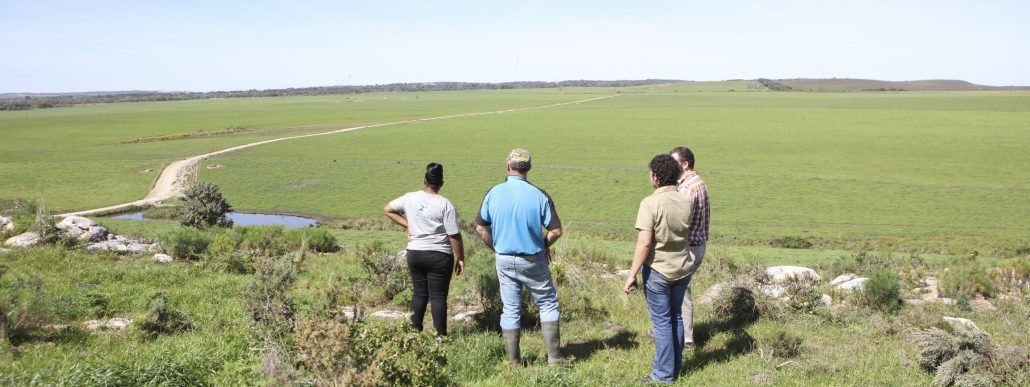Commercial farming is the business of growing crops and/or raising livestock in order to produce food for human and animal consumption. It is important to note that it is a business. This involves the need to be profitable so as to continue operating. I believe that this is an often overlooked aspect of farming by consumers. In as much as farming is about making a profit, it is also about managing land. Farmers who manage their land well are more likely to be successful.
There is also a responsibility to being a land manager. Farmers are in a position to be stewards of the land that they manage. I grew up on a farm in Cathcart in the Eastern Cape, interviewed farmers in the Springbokvlakte for my fourth year project, interviewed farmers in the Kouga River catchment area for my masters, am distributing questionnaires to farmers throughout the Eastern Cape for my PhD research, and have been working with dairy farmers for the last three years in the Eastern Cape. In all of this interaction there has been a focus on conservation ecology and sustainable agriculture. The very large majority of farmers I have spoken to have expressed a great desire to look after their land. Farmers most often tend to be people that love nature, and care about the land with which they farm.
I get frustrated when I often hear how farmers are portrayed in a negative light, especially relating to issues of sustainability. There are various explanations for why farmers have adopted practices that are perceived as negative from an environmentalism perspective.
Sometimes it is just a lack of knowledge. This lack of knowledge can be from the farmers, who do not realise the potential negative impact of practices that have traditionally been seen as good agricultural practices. It can also be from the non-farmer side, where there is a lack of understanding (by consumers), or a miscommunication (by e.g. media, government, non-governmental organisations, private companies) of what farming practices entail and the impact thereof. The lack of knowledge is becoming less prominent in this day and age of technology and the internet though. Another reason is that farmers are unable to adopt better practices because of financial pressure. Many of the positive practices which promote biodiversity conservation and environmentalism can be at a great cost to farmers. As mentioned previously, farming is a business, and it is difficult for a business person to adopt a practice that will not result in a profit, which is the case with some of these positive practices. There are obviously also cases where farmers just do not care about the environment or the negative impact of their practices, but I believe these are a significant minority. I cannot point out every possibility, but rather want to make the point that there are many explanations as to why farmers do not always adopt what are perceived to be more environmentally friendly practices.
The beauty of sustainable agriculture is that it encourages a philosophy of promoting environmentally friendly practices while acknowledging, and promoting, the need for financial stability. These practices benefit the environment, the farmer and the consumer. Farmers who adopt sustainable management principles are playing a vital role in producing food, while also stewarding the land that supports food production so that future generations can enjoy the same productivity. It is important for consumers of agricultural products to support and encourage the sustainable production of food.
- A carbon footprint assessment for pasture-based dairy farming systems in South Africa - 2024-02-07
- What progress have farms participating with Trace & Save made over the past 10 years? - 2023-09-06
- Carbon footprint reduction over time: Lessons from pasture-based dairy farms in South Africa - 2023-09-04

